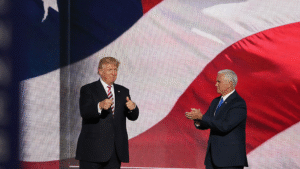
UK Grocery Inflation Eases to 5% in August 2025
UK grocery inflation eases to 5% in August 2025, showing slight relief. Consumers shift to value shopping as branded items rise and dining out declines.

The coronavirus pandemic has prompted us to rethink how we work in so many ways, including where we work — whether in an office or at the comfort of our couch — and what work hours truly entail. Freedom and autonomy are crucial in determining how work can change as a result of this experience and beyond. With the hybrid office becoming a norm, now is the time to consider what real freedom and productive independence look like in the workplace.
No one likes being told what to do or having their freedom taken away, but there is an indication that we may require boundaries to stay focused. Finding the sweet spot between too little and too much freedom is the key. We require freedom to function on a very basic level. Autonomy is not only maintaining a feeling of control over our actions but also seeing consistency between our guiding principles and actions. While this has been shown to be important to well-being in general, much of the research on freedom in the workplace emphasizes the importance of control to employees’ sense of effectiveness and value in a company.
Most of the time, we tend to give a negative reaction when we feel a threat to our freedom. Of course, there is individual variance, where the more you cherish your freedom, the more negative your reaction will be. But the idea holds true for a large number of people. Limiting our options causes us to feel nervous, frustrated, and sometimes even compelled to do the exact opposite of what we’re instructed.
It seems to reason, then, that increasing an individual’s sense of control and freedom, and so their well-being, is a good thing. That isn’t the case, as it turns out. Though restricting one’s freedom of choice makes life more unpleasant, there is a psychological force at work that opposes this: the paradox of choice. The expression refers to the drawbacks of having too many options, such as being confronted with too many different types of jam on a shop shelf.
When people are given freedom, it is certain that not everyone will take over the duty of exercising it properly. Burnout is a result of too much responsibility without proper support, and too little freedom leads to animosity. It is also seen vice versa when work is not completed efficiently if there is too little responsibility and too much freedom.
New ideas are being created, and businesses are gradually going out of their way to bend the hard traditional standards and provide better working conditions for their workers. The new work ideal, on the other hand, has yet to be established. Most businesses are debating what level of flexibility and freedom would be most beneficial to them as a business while also benefiting their employees. Because freedom is unquantifiable, it may be a difficult decision to make. And finding the ideal balance between freedom and responsibility is the key to this.

UK grocery inflation eases to 5% in August 2025, showing slight relief. Consumers shift to value shopping as branded items rise and dining out declines.

Zelenskiy–Trump summit boosts markets as equities rise and the dollar steadies amid growing peace hopes. Investors await Fed insights at Jackson Hole for further direction.

Statistics Canada is investigating an accidental early release of June manufacturing data, raising concerns over data governance and market integrity. The agency has launched an internal review to strengthen its publishing protocols.

Investor confidence in France is deteriorating as political gridlock and budgetary uncertainty deepen.

June 09, 2025: Canada will host the 50th G7 Summit from June 15 to 17 in Kananaskis, Alberta, amid heightened global tensions and economic rifts.

May 30, 2025: Canada’s economy expanded at an annualized rate of 2.2% in the first quarter of 2025, outperforming the market forecast of 1.7%.

At seventeen, Professor Richard Rose stepped into a world few adults dare to navigate: the world of children fractured by trauma. He wasn’t a clinician then, nor a scholar. He was simply a young man with a heart tuned to the quiet ache of others.

Following a distinguished Law Enforcement career Joe McGee founded The Securitatem Group to provide contemporary global operational specialist security and specialist security training products and services for private clients, corporate organisations, and Government bodies. They deliver a wide range of services, including complete end-to-end protection packages, close protection, residential security, protection drivers, and online and physical installations. They provide covert and overt investigations and specialist surveillance services with a Broad range of weapons and tactical-based training, including conflict management, risk and threat management, tactical training, tactical medicine, and command and control training.

Jay Wright, CEO and Co-Owner of Virgin Wines infectious energy, enthusiasm, passion and drive has been instrumental in creating an environment that encourages talent to thrive and a culture that puts the customer at the very heart of every decision-making process.

Fabio de Concilio is the visionary CEO & Chairman of the Board at Farmacosmo, a leading organization dedicated to mental health and community support services. With a deep commitment to identifying and meeting customer needs, Fabio ensures that high standards are maintained across the board.

Leave us a message
Subscribe
Fill the form our team will contact you
Advertise with us
Fill the form our team will contact you